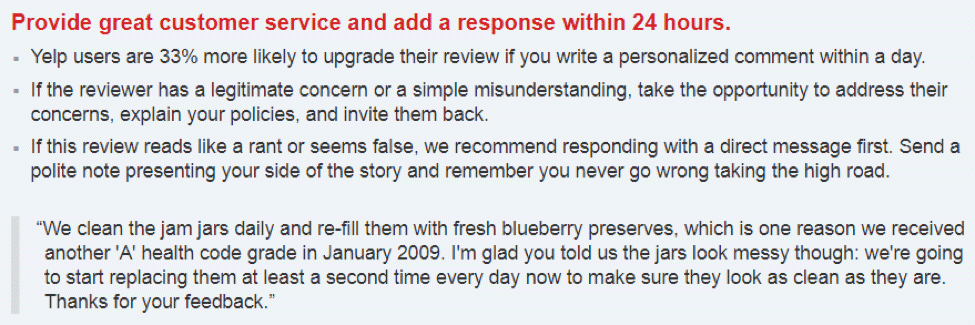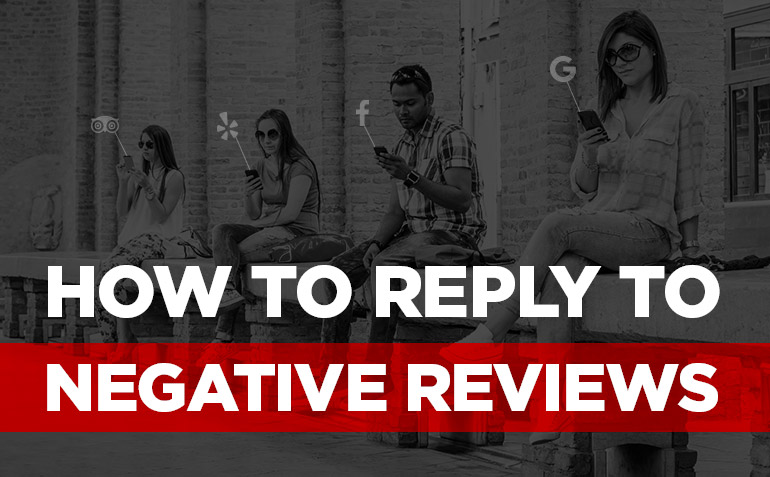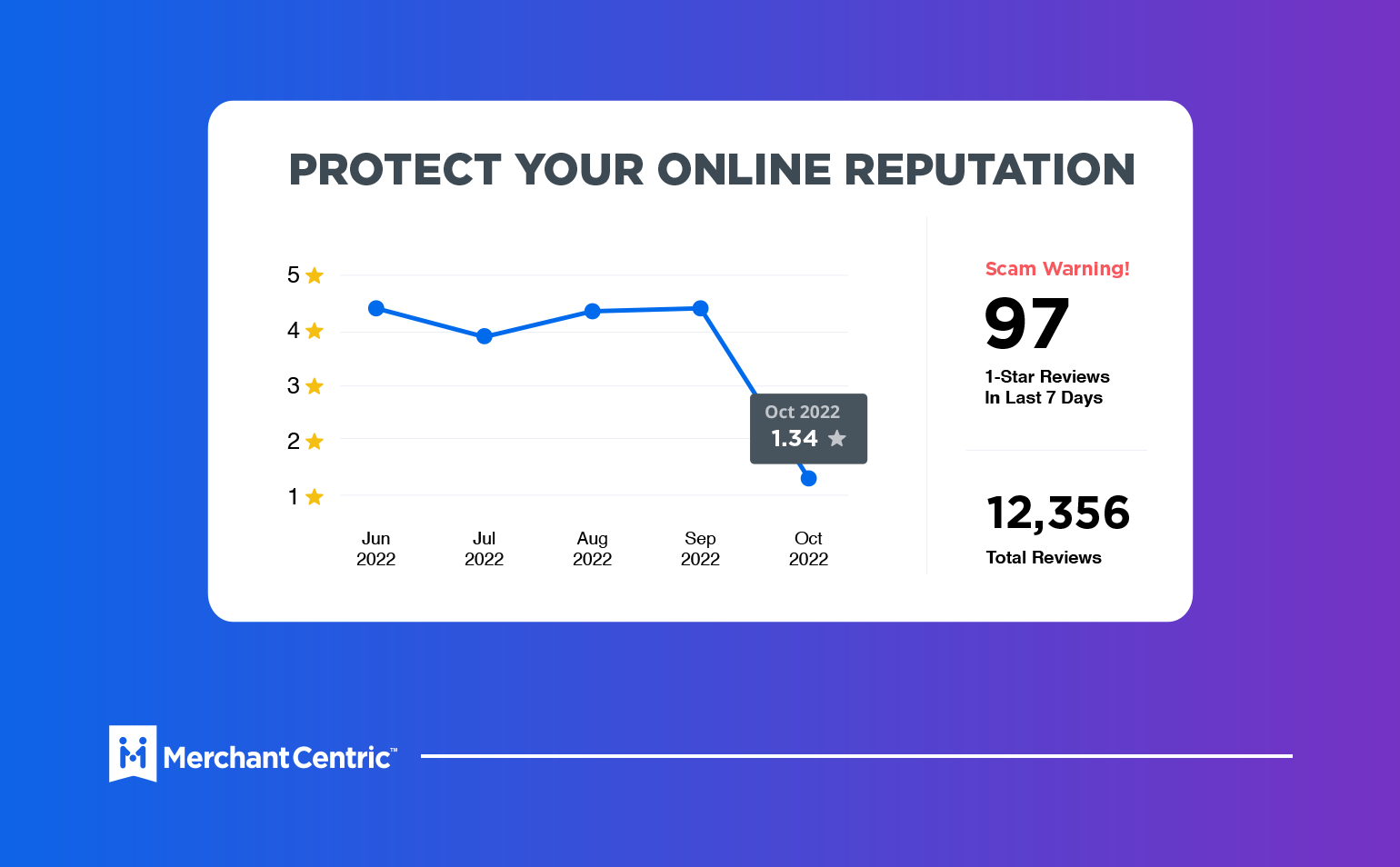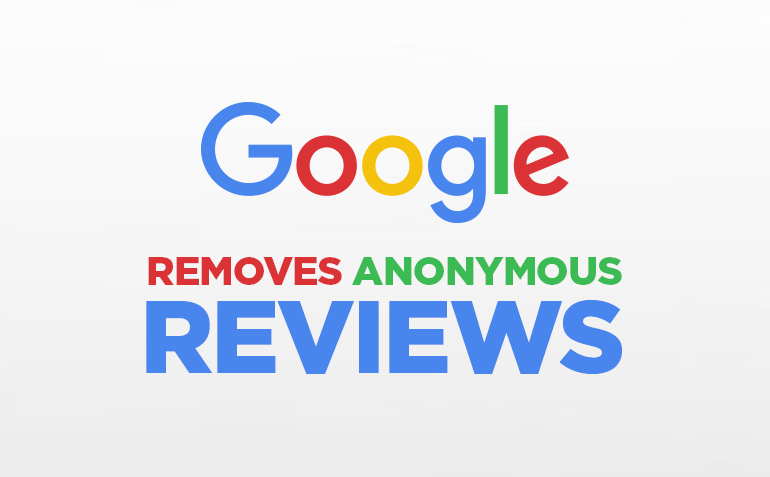Negative Reviews Will Always Exist
Just like every business has happy customers, those same businesses will have unhappy customers too. This has always been, and always will be, the case.
While one person loves a steak burrito with a signature cilantro taste, another won’t be able to stomach it.
One customer may love a fast oil change, while another thinks that fast equates to a lack of care.
Tastes, perceptions, and people in general, will always like different things. Because of this, a business will never be able to please all customers, all the time.
This is a fact of doing business, and that has not changed with the dawn of online review sites. The only difference now is that instead of talking to friends in person about a perceived negative experience, these people now have a platform to shout their concerns to the masses.
What they say online isn’t going away (unless it violates site content guidelines, which we’ll discuss later). The only way it will severely hurt your business, is if you choose to ignore it. In fact, studies have shown that negative reviews can actually help your business, as consumers seek out complaints. These customers are savvy enough to know that real, legitimate reviewers, are not always going to be happy. What concerns them most, is how business owners reply when a customer is upset.
How you reply, makes all the difference.
Types of Negative Reviews
Negative reviews come in a variety of star-ratings, themes, and sentiments. The most base level negative review would be a one or two-star rating with only negative sentiments about price, product, service, location, etc. This is a customer who disliked virtually everything about your business and she is making a point to make that clear to everyone reading. Odds are, you aren’t going to win this customer back, but anything is possible. Regardless, your response should be less about the person reviewing, and more about others reading.
Any good salesperson loves objections because it gives them a chance to break down barriers and discuss benefits. Online reviews are no different. You are selling your product or service to the site community.
If a negative review points out a health and safety concern, the first thing you would want to do is assure those reading that this is not a reflection of your business’ standards. Accompany the statement with an example of how this is true: “Please note that we received an A on our most recent health inspection in December.”
Since many consumers will be researching businesses based on how clean they are, your response to this review is a good way to not only respectfully reply to the reviewer, but to effectively address concerns potential customers likely already have.
The key is to avoid getting combative. Prospective customers, generally, do not care about who is right or wrong. They do not want to see an episode of a daytime TV drama playing out on Google. What they do care about, is that the business owner is responsive to customer concerns, and willing to take constructive feedback.
Again, you can’t please all customers, all the time, and the folks reading your reviews know this. They care less about what you say, and more about how you say it.
What about Positive Reviews with Negative Comments?
These reviews will come in the form of 3-5 star, neutral to positive, ratings. Typically, in these cases, the reviewer will have a number of positive things to say, with some negative concerns sprinkled in.
The key in such cases is to focus mostly on the positive sentiments since most potential customers will only be skimming review sites. You don’t want to dwell on negative points, as those will cause individuals to pause and really critique you. Moreover, the reviewer who leaves a neutral or positive rating will be more likely to come back.
Remind her of all of the things she loved. Promise to improve what went wrong, and/or assure her that the negative mentions do not reflect your company’s standards. This person is a warm lead who wants to come back. Give her reasons to, and again, don’t argue and don’t be defensive. If applicable, ask her to reach out to you offline to discuss in greater depth.
Yelp even offers a general reply guideline when replying on their site, which has some good advice and information (i.e. Yelp users are 33% more likely to upgrade their review if you write a personalized comment within a day). Also, Yelp offers a private message feature, which may be more appropriate than a public comment in some cases. We’ll get into site differences for replies, and how you can leverage each below.

Site Differences for Negative Reviews
Yelp and TripAdvisor
When replying to reviews on Yelp and TripAdvisor, it’s important to remember that, in addition to the public comments feature, there is also a private message option. This can be useful if you want to invite the customer to come back in with an incentive, like a free coupon. Keep in mind, offering incentives publicly could invite others to leave negative feedback merely for the sake of free goods or services.
We recommend only offering freebies sparingly, and in private, to assure no one takes advantage of your business. Also, do not make your offers seem like bribes. If Yelp thinks you are offering goods or services in exchange for reviews to be posted or removed, the site will penalize your listing with a message stating you have been soliciting reviews.
Instead, the way you phrase responses with offers should be along the lines of, “We’d love to regain your trust, so here is a coupon for a free sandwich on your next visit,” or, “We would love to reach your 5-star level of satisfaction, so here is a coupon for a free vehicle maintenance.” Essentially, anything that doesn’t say, “We’ll give you this in exchange for a positive review,” should work.
There is no reliable private message feature for people who are not your friends on Facebook. Likely, if someone left you a negative review, they are not your Facebook friend, so any private message you send would end up hidden in their secondary inbox.
Public comments are the only reliable avenue for addressing customer concerns. Keep in mind that Facebook reviews are essentially an open forum. You have to be very careful in how you engage with customers here, and ensure you do not open up an argument. These customers can reply to your reply, and encourage other people to comment. This could create a chain of hundreds of messages, further emphasizing their bad experience.
For Facebook replies, your best bet is to remain calm, neutral, and invite the customer to discuss their concerns offline. If there was ever a site that fits the proverbial hornets’ nest, Facebook would be it, and you do not want to aggravate it with how you respond.
Google is like Yelp or TripAdvisor in terms of how to reply to reviews, minus the private message feature. Public comments are your best and only avenue of reply.
Conclusion
Negative reviews are a new way of life for business owners, but they don’t have to mean negative results for your business. Reviews, positive and negative, are a great way to spread the word about who you are and what you do. As long as you take control of the conversation, and ensure nothing is said without your knowledge, your business will thrive.










